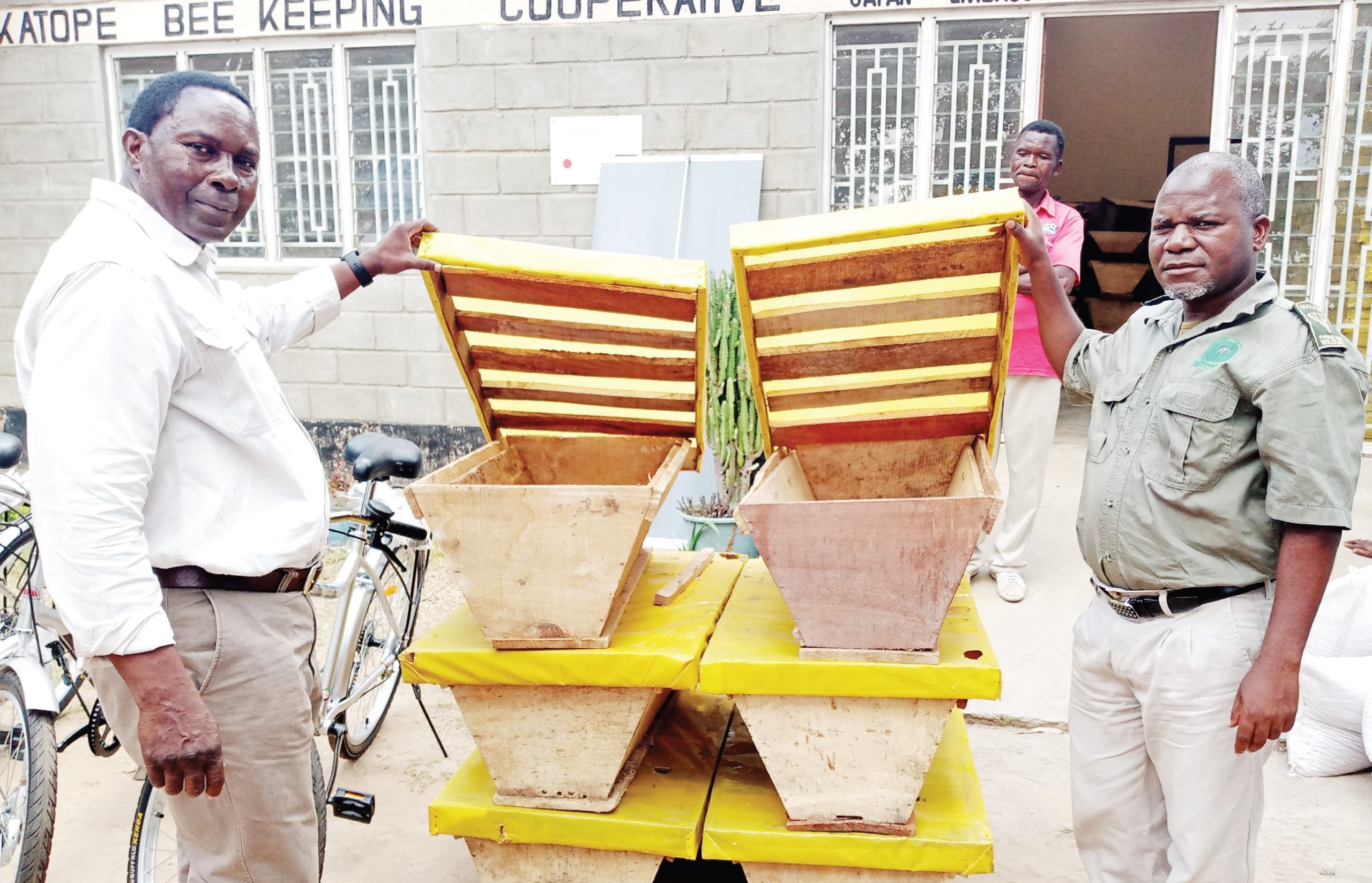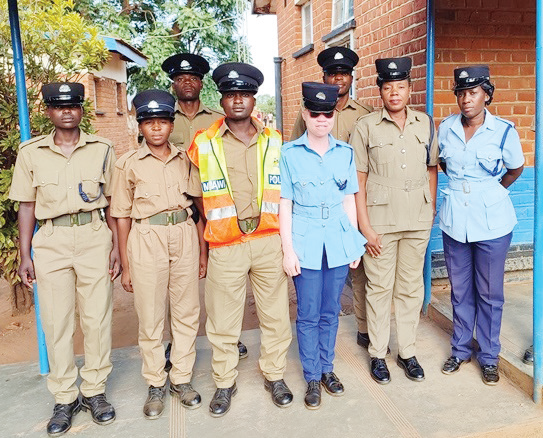Charcoal still a burning issue in Zomba (Part 1)
Group Village Head Mbelo of Traditional Authority Malemia in Zomba vividly recalls how beautiful Zomba Mountain was—a beautiful scenery of lush greenery. She says since time immemorial, the mountain has been a source of life for communities scattered in villages below it through its numerous perennial rivers. That, now, is under threat. Unsustainable charcoal production is increasingly posing a danger to livelihoods as it has become one of the main drivers of deforestation and forest degradation.
Chief Mbelo, whose village is in the periphery of Malosa Forest Reserve in the district, is caught between a rock and a hard place. She is struggling to balance between protecting the environment, which is a source of income for many households, and dealing with the effects of the degradation that is a result of unsustainable energy supply and environmental problems.
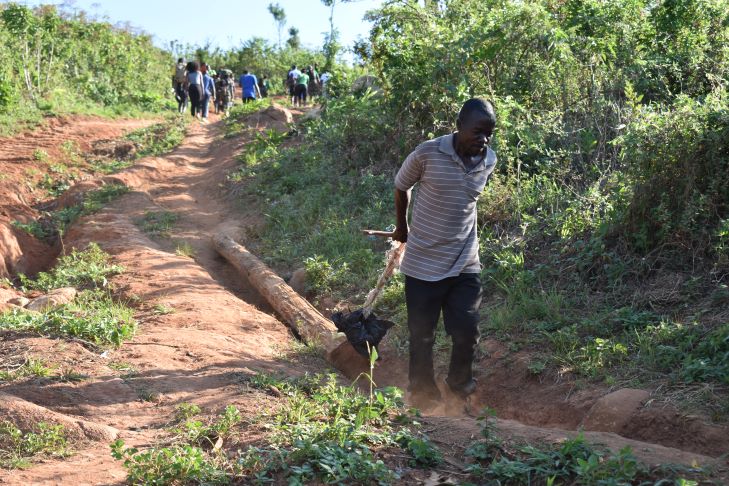
“Not long ago, everyone was talking about the beauty of Zomba Mountain because of its forest cover. Then suddenly we started witnessing the pressure on the use of charcoal and firewood, especially for people living in the city of Zomba. Some individuals started to invade Malosa and Zomba forest reserves. Over the years, loggers have plundered these forests and what is left is a pathetic sight. We need to do something really fast to save what is remaining of these forests,” the traditional leader says.
In a situation where over 70 percent of Zomba City dwellers rely on firewood or charcoal as their primary source of energy for cooking and heating, the threat to forests is real. Any unregulated logging spells doom for communities that rely on farming for survival. In some instances, rivers are drying up for a better part of the year. While in other circumstances effects of depletion of forests have led to flooding of rivers.
“We thank God for sparing our lives during Cyclone Freddy because the water from the mountain went straight into another river which also caused damage at Mafufuni Bridge on Zomba Road after Songani Trading Centre. We know that this is a result of deforestation which is happening here,” Chief Mbelo says.
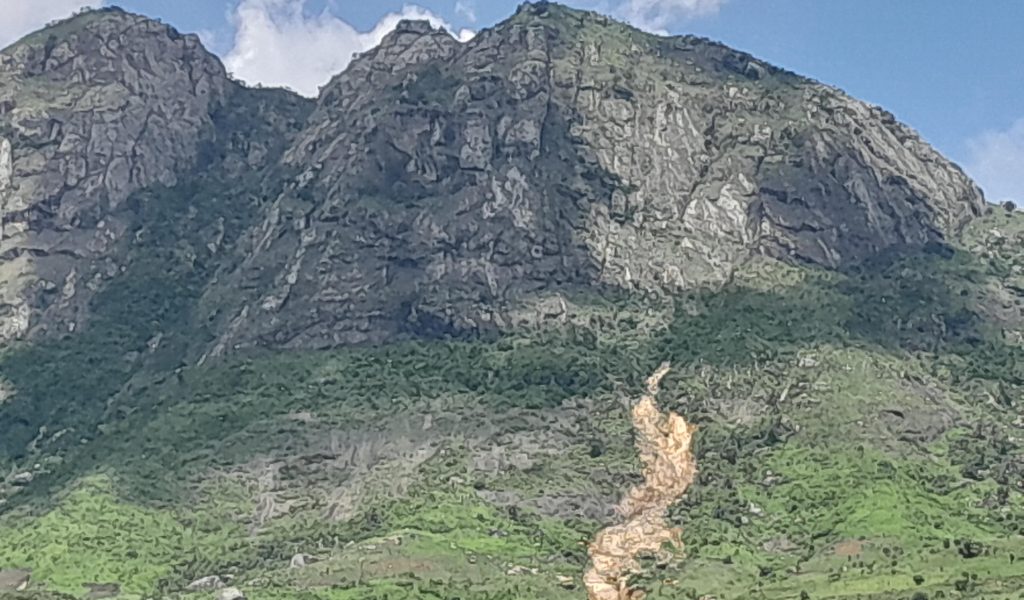
The chief has seen it all and is worried that if this trend is not reversed immediately, there could be more disasters along the way. She blames it all on encroachers who have invaded the 11 blocks in Malosa Forest Reserve and other protected forests where they are cultivating their crops and cutting down trees wantonly.
There are by-laws that communities have agreed to abide by to save forests. Chief Mbelo says without these by-laws the remaining forest cover will be gone overnight which could mean disaster for communities that depend on forest products for survival. Villagers have agreed on fines that are meted out on those found plundering forests. These, says Chief Mbelo, vary from village to village.
“To overcome some of the challenges we face as regards caring for the environment, the communities on their own make by-laws with a view to protect their village forests. But the community by-laws and fines vary from village to village. All we are trying to do is to save forests; we want to civic educate people on sustainable use of forest products. These forests are our future and if we mess up we will have ourselves to blame – we are bound to suffer for our actions when nature begins to fight back,” she says.
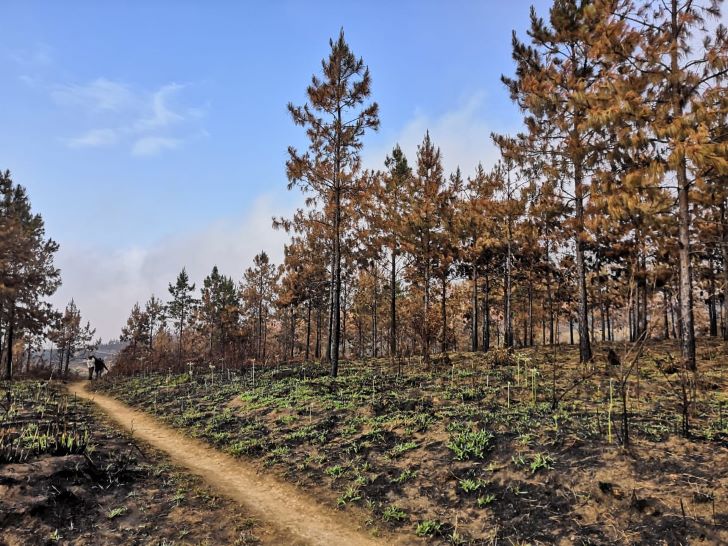
Information sourced from the Department of Forest in the district shows that Zomba has 425 natural resources village management committees whose core responsibility is to help reverse the environmental decline. While these committees play a crucial role in conservation efforts, not all of them are registered with the Department of Forestry.
Uncoordinated efforts, therefore, are taking back the gains realised in conservation as people who are in the business of making charcoal capitalise on these weaknesses to continue with the plunder.
Chief Mbelo says: “Some of the plunderers come from neighbouring Machinga District. They come here to seek a hand in marriage and settle here as tradition [chikamwini] demands. We have come to realise and establish that some of these in-laws are the ones destroying our forests. Others come to look for houses for rent when, in fact, their motive is to encroach the forest reserve to produce charcoal and cut trees for firewood. These are the people who are now cultivating right in the mountain arguing that the land is more fertile there than here. They forget that the trees they are felling provide us with so many things including the clean air that we breathe.”
Laissez faire attitude to a serious problem
Despite the presence of responsible authorities to curb the practice, they simply look away and let people continue with the destruction of forests. It is this laissez faire attitude that is creating an impression that some chiefs, forestry officers and police officers are benefitting from the plunder.
This is rendering all the conservation efforts by different stakeholders to go up in smoke as a counter blame game has ensued between the communities and forestry officials over bribes and corruption. This has left the forests and the environment vulnerable to destruction.
Communities now believe that they could have been spared of the effects of Tropical Cyclone Freddy had it been that the forests and natural vegetation were intact. Mbelo communities are feeling the impacts of forestry degradation through reduced water table that makes the area to have difficulties in accessing water in some months of the year, soil erosion and general land degradation that has exposed the area to poor harvest.
Destruction of forest cover in Mbelo village which is situated in the uplands of Malosa forest has manifested its negative impacts downstream with the flooding and washing away of Mafufuni Bridge in Zomba City on the M3 (Zomba–Liwonde Road). The Malosa Forest Reserve has a diversity of flora and fauna like insects which are now under threat from charcoal-induced deforestation.
Chief Mbelo says she believes there is deep-seated corruption in the fight against environmental degradation. She says the by-laws are rarely adhered to and fewer people are taken to task if they commit environmental crimes.
“I believe corruption is the reason we are not making progress in this fight. It is obvious that people benefit from this industry. It is my conviction that forest guards and those who burn charcoal and cut timber in the mountain share the spoils. How come that guards are there protecting the remaining trees but still people encroach in the protected area to produce charcoal? It just shows someone there knows what is going on and are surely benefitting from this illegal exercise,” Chief Mbelo says.
She also wonders how charcoal gets to Zomba City despite the many road blocks that are mounted by the police. She thinks if the forestry officers and police worked together, they could have succeeded in confiscating the charcoal and prosecute the suspects. Mbelo says lack of collaboration is only fueling deforestation frustrating efforts of stakeholders who are keen to save forests.
Weak by-laws?
Agreeing with Chief Mbelo is villager Fatima Anafi, who acknowledges that most men spend much of their time at the forest burning charcoal, doing more damage to the remaining trees. She says while the community has gazzetted by-laws by the Department of Forestry, they have not been effective.
“Those caught cutting down trees are supposed to pay a fine of K30 000 to the chief and then the suspect is taken to Police and Department of Forestry for further action. Recently, we caught two men who were passing through our village with bags of charcoal. They paid a fine and were taken to police but within two days we saw them walking scot-free. This demotivates us as members of the community and members of community policing,” Anafi says.
“We strongly believe that these criminals bribe Forestry officials to buy their freedom and continue to destroy our natural resources. We must find a sure way of curbing this malpractice.
“At the pace we are destroying the environment, we are digging our own graves. In the next few years there will be no reliable sources of water and firewood. Even the challenges we face in farming will worsen because we will have destroyed nature,” Anafi says.



